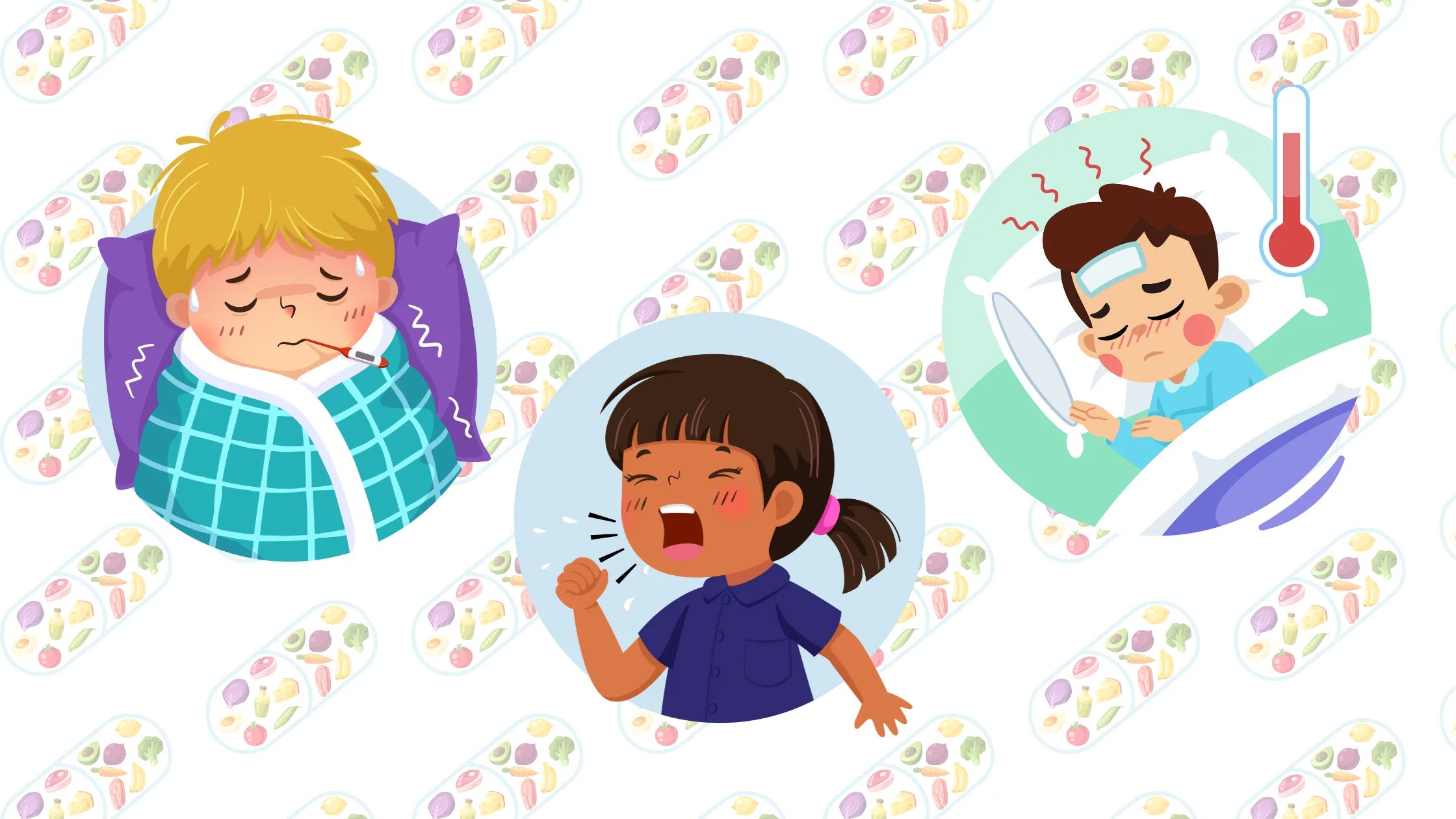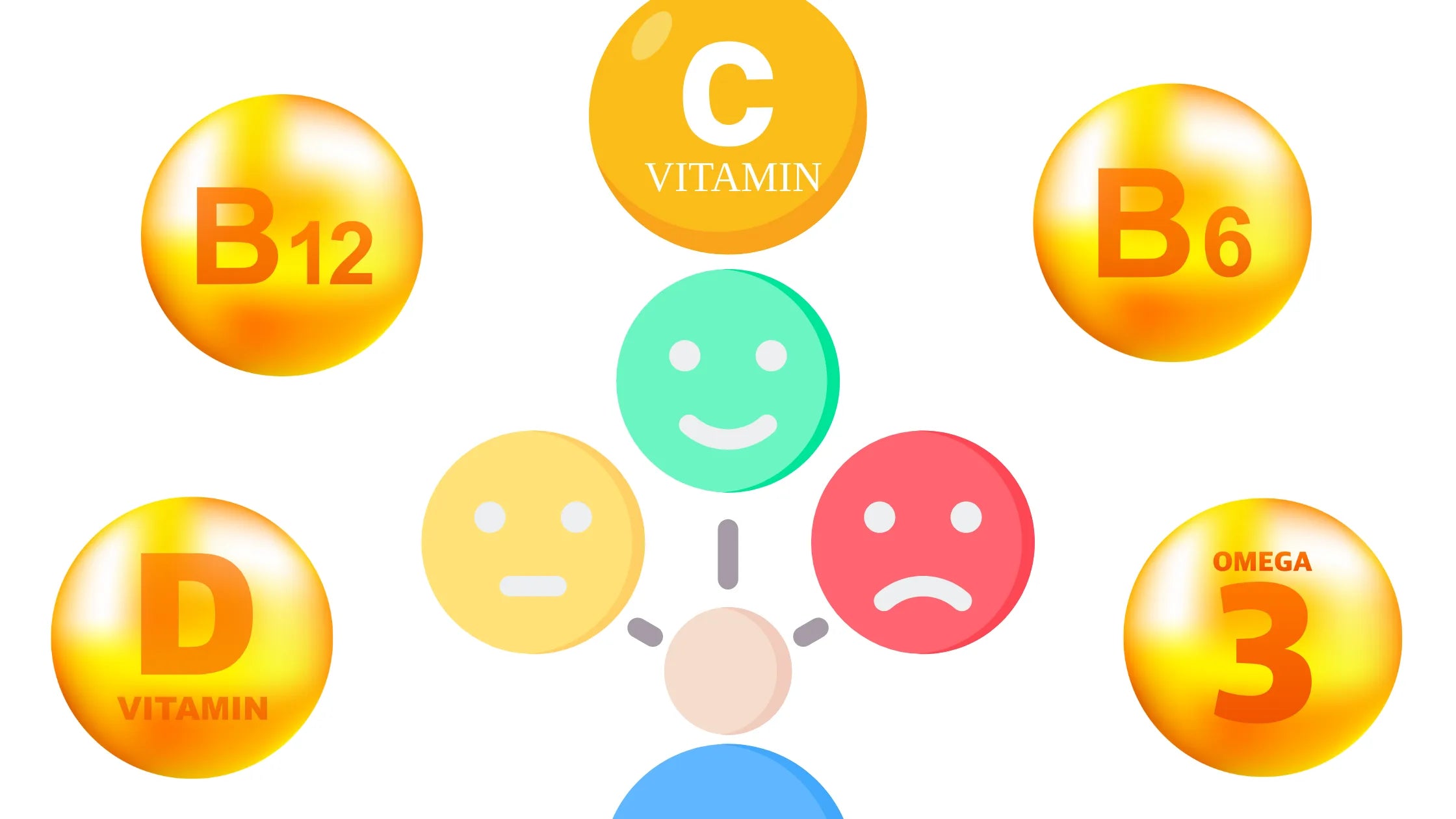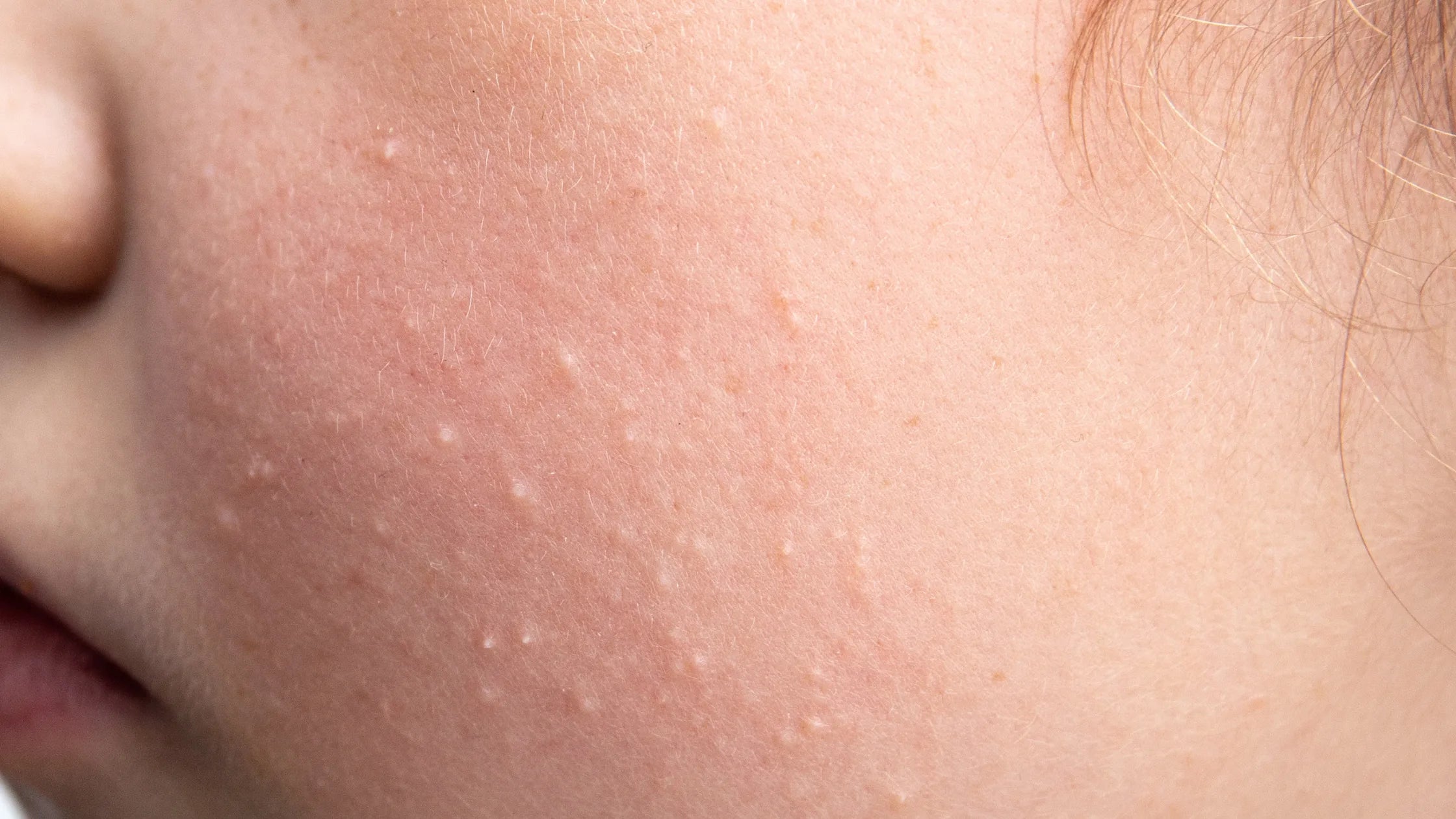In this article, we will explore the top 6 symptoms of vitamin deficiency in children that you should be aware of and how recognising these symptoms early can lead to better health and development for your child.
Why Are Vitamins Important for Children?
Vitamins play a critical role in a child’s growth, development, and overall well-being. From building strong bones and teeth to supporting immune function and brain development, vitamins ensure that your child grows up healthy. Without enough vitamins, children may face a variety of health issues, ranging from fatigue to more serious conditions like weakened immune systems and developmental delays.
Children are particularly susceptible to vitamin deficiencies due to their growing bodies and often selective eating habits. According to a study published in the journal Nutrients, vitamin deficiencies can hinder cognitive and physical development in children, leading to lifelong consequences if not addressed.

Common Symptoms Of Vitamin Deficiency In Children
1. Fatigue and Weakness (Vitamin D Deficiency)
Fatigue, irritability, and general weakness are some of the first signs of vitamin D deficiency in children. Vitamin D is essential for bone growth and helps the body absorb calcium, which is crucial for maintaining strong bones and teeth. When children do not get enough vitamin D, they are at risk of developing conditions like rickets, which cause bone weakness and deformities.
A study published in the American Journal of Clinical Nutrition shows that children with vitamin D deficiency often show signs of fatigue, muscle weakness, and even depression. To help ensure your child receives adequate vitamin D, exposure to sunlight and foods like fortified milk, fish, and egg yolks are recommended.
Learn All The Major Signs Of Vitamin D Deficiency In Children.

2. Frequent Infections and Slow Healing (Vitamin C Deficiency)
If your child seems to be catching colds and infections more frequently than other children, a vitamin C deficiency could be the culprit. Vitamin C is crucial for the immune system, helping to fend off infections and heal wounds. It also acts as an antioxidant, protecting the body’s cells from damage.
Vitamin C deficiency, also known as scurvy in extreme cases, can lead to frequent infections, gum problems, and slow wound healing. Vitamin C deficiency weakens the immune system, making children more susceptible to infections. Citrus fruits, strawberries, and broccoli are great sources of vitamin C.
3. Poor Growth and Development (Vitamin A Deficiency)
One of the key symptoms of vitamin A deficiency in children is poor growth and delayed development. Vitamin A is essential for maintaining healthy skin, vision, and immune function. It also plays a pivotal role in ensuring normal growth and development, particularly in young children.
A lack of vitamin A can lead to stunted growth, dry skin, and even night blindness. According to the World Health Organization (WHO), vitamin A deficiency is one of the leading causes of preventable blindness in children worldwide. Ensuring your child eats foods like carrots, sweet potatoes, and spinach can help boost their vitamin A levels.
4. Muscle Cramps and Weakness (Vitamin B Deficiency)
Vitamin B deficiencies, particularly B6, B12, and folate, are known to cause muscle cramps, weakness, and even cognitive issues in children. Vitamin B is crucial for energy production, brain function, and red blood cell formation. Without enough vitamin B, children may suffer from anaemia, which leads to fatigue, weakness, and poor concentration.
Research from the Journal of Health, Population and Nutrition found that children with a deficiency in B vitamins often struggle with focus, memory, and general energy levels. Foods rich in B vitamins include whole grains, poultry, and eggs.

5. Dental Problems and Irritability (Vitamin K Deficiency)
Vitamin K plays a critical role in blood clotting and maintaining healthy bones. A deficiency in vitamin K can lead to dental issues, such as bleeding gums and tooth decay, as well as irritability due to the discomfort caused by bleeding problems. This vitamin also helps in preventing bone disorders like osteoporosis later in life.
Research shows that children with low vitamin K levels are more prone to gum disease, tooth decay, and even bone fractures. Dark leafy greens such as spinach and kale, along with dairy products, are excellent sources of vitamin K.
Understand The Relationship Between Vitamin Deficiency And Child Behaviour.
6. Weak Immune System and Skin Issues (Vitamin C Deficiency)
Vitamin C is an essential mineral that plays a critical role in immune function, cell growth, and skin health. Vitamin C deficiency can manifest as frequent infections, slow wound healing, and skin problems like eczema or rashes. Children with vitamin C deficiency often have weaker immune systems, making them more susceptible to illnesses.
Vitamin C supplementation in deficient children significantly improved immune response and reduced the frequency of infections.
Addressing Vitamin Deficiencies
Recognising these symptoms of vitamin deficiency in children is crucial to ensuring your child’s well-being. While a balanced diet is the best way to provide essential vitamins, picky eating habits and limited food choices can sometimes make this difficult. To fill in the nutritional gaps, you can consider adding a high-quality multivitamin supplement to your child’s daily routine.
Kid’s One Daily, a multivitamin for kids in Pakistan by Route2Health, provides a well-rounded blend of essential vitamins and minerals designed to support your child’s growth, development, and immune function. It’s a convenient way to help your child meet their daily vitamin requirements.
Conclusion
Keeping an eye out for these symptoms of vitamin deficiency in children is key to maintaining your child’s health and ensuring they grow up strong and healthy. From fatigue and frequent infections to poor growth and muscle weakness, the signs can vary, but they all point to one crucial factor: a lack of essential nutrients.
If you suspect your child may be experiencing any of these symptoms, consult a healthcare professional and consider introducing foods rich in the missing vitamins or a multivitamin like Kid’s One Daily. Early intervention can prevent long-term health issues and support your child’s overall well-being.
FAQs
1. What causes vitamin deficiency in children?
Vitamin deficiency in children is usually caused by poor diet, selective eating habits, or lack of exposure to natural sources like sunlight (for vitamin D). Certain medical conditions can also affect how vitamins are absorbed by the body.
2. How can I tell if my child has a vitamin deficiency?
Common symptoms of vitamin deficiency in children include fatigue, frequent infections, poor growth, muscle weakness, and skin issues. A healthcare professional can diagnose deficiencies through blood tests.
3. What are the most important vitamins for children’s health?
Key vitamins for children include vitamin D (for bones), vitamin C (for immunity), vitamin A (for growth and vision), and B vitamins (for energy and brain function).
4. Can vitamin deficiencies affect my child’s development?
Yes, vitamin deficiencies can significantly affect both physical and cognitive development in children, potentially leading to developmental delays and health issues if left untreated.
5. How can I prevent vitamin deficiency in my child?
Ensure your child has a balanced diet rich in fruits, vegetables, whole grains, and lean proteins. Supplements like Kid’s One Daily can also help fill nutritional gaps and ensure adequate vitamin intake.
























































